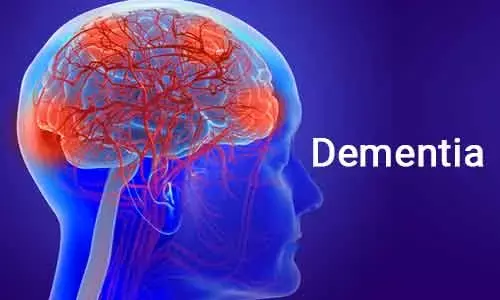- Home
- Medical news & Guidelines
- Anesthesiology
- Cardiology and CTVS
- Critical Care
- Dentistry
- Dermatology
- Diabetes and Endocrinology
- ENT
- Gastroenterology
- Medicine
- Nephrology
- Neurology
- Obstretics-Gynaecology
- Oncology
- Ophthalmology
- Orthopaedics
- Pediatrics-Neonatology
- Psychiatry
- Pulmonology
- Radiology
- Surgery
- Urology
- Laboratory Medicine
- Diet
- Nursing
- Paramedical
- Physiotherapy
- Health news
- Fact Check
- Bone Health Fact Check
- Brain Health Fact Check
- Cancer Related Fact Check
- Child Care Fact Check
- Dental and oral health fact check
- Diabetes and metabolic health fact check
- Diet and Nutrition Fact Check
- Eye and ENT Care Fact Check
- Fitness fact check
- Gut health fact check
- Heart health fact check
- Kidney health fact check
- Medical education fact check
- Men's health fact check
- Respiratory fact check
- Skin and hair care fact check
- Vaccine and Immunization fact check
- Women's health fact check
- AYUSH
- State News
- Andaman and Nicobar Islands
- Andhra Pradesh
- Arunachal Pradesh
- Assam
- Bihar
- Chandigarh
- Chattisgarh
- Dadra and Nagar Haveli
- Daman and Diu
- Delhi
- Goa
- Gujarat
- Haryana
- Himachal Pradesh
- Jammu & Kashmir
- Jharkhand
- Karnataka
- Kerala
- Ladakh
- Lakshadweep
- Madhya Pradesh
- Maharashtra
- Manipur
- Meghalaya
- Mizoram
- Nagaland
- Odisha
- Puducherry
- Punjab
- Rajasthan
- Sikkim
- Tamil Nadu
- Telangana
- Tripura
- Uttar Pradesh
- Uttrakhand
- West Bengal
- Medical Education
- Industry
Bosutinib holds promise for treatment of dementia, finds study

USA: Tyrosine kinase inhibitors such as bosutinib could be an effective treatment for neurodegenerative dementia, suggests a recent study in the journal Neurology. According to the preliminary results, bosutinib use yielded an overall positive outcome after 1 year.
The class of medications known as tyrosine kinase inhibitors such as bosutinib has inspired interest in the pursuit of effective therapy for dementia. Kennedy D. Mahdavi, University of Southern California, Los Angeles, CA, and colleagues present early findings regarding the treatment of dementia with or without parkinsonian features with the tyrosine kinase inhibitor bosutinib.
The study evaluated 15 patients without parkinsonian features and 16 patients with. Patients received bosutinib daily for 12 months, with an additional 12-month follow-up.
The Clinical Dementia Rating scale (as estimated by the Quick Dementia Rating System [QDRS]) was the primary cognitive status outcome measure. Secondary outcome measures included the Repeatable Battery Assessment of Neuropsychological Status (RBANS) and the Montreal Cognitive Assessment.
- Safety and tolerability of bosutinib were confirmed among the study population (Mage = 73.7 years, SDage = 14 years).
- Bosutinib was associated with less worsening in Clinical Dementia Rating (CDR) scores (HR = −0.62,) and less decline in RBANS performance (HR = −3.42) during the year of treatment than population-based estimates of decline.
- In the 24-month follow up, wherein 16 patients were observed after 1 year post-intervention, 31.2% of participants exhibited worsened CDR levels compared to their 12-month performances.
"Results support an overall positive outcome after 1 year of bosutinib. Larger randomized trials are required to determine optimal treatment regimens and direct relationships between treatment and neurodegeneration," concluded the authors.
"Treatment of dementia with bosutinib: An open-label study of a tyrosine kinase inhibitor," is published in the journal Neurology.
DOI: https://cp.neurology.org/content/early/2020/09/09/CPJ.0000000000000918
Dr Kamal Kant Kohli-MBBS, DTCD- a chest specialist with more than 30 years of practice and a flair for writing clinical articles, Dr Kamal Kant Kohli joined Medical Dialogues as a Chief Editor of Medical News. Besides writing articles, as an editor, he proofreads and verifies all the medical content published on Medical Dialogues including those coming from journals, studies,medical conferences,guidelines etc. Email: drkohli@medicaldialogues.in. Contact no. 011-43720751


